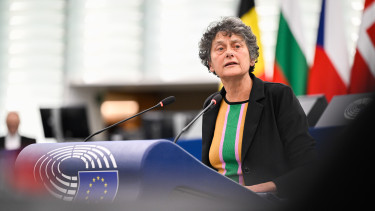Hungarian cabinet takes unprecedented measures to fight spread of coronavirus

Here are the measures that will come into effect as of Wednesday midnight:
- An official emergency status is to be declared, which entails special rights defined both in the constitution and in the disaster management act
- Border control will be re-implemented on the Schengen borders with immediate effect. Only Hungarian citizens may enter the country arriving from Italy, Iran, China, and South Korea.
- Coaches, trains, aircrafts may net enter Hungary from Italy, Iran, China and South Korea.
- Citizens who make false statements and refuse to obey the measures will be penalised
- There is a ban on visiting universities where education may be continued only via e-learning
- There is a Europe-wide consensus that children rarely get infected with the coronavirus therefore the cabinet does not find it necessary to close schools at the moment for it would mean that the current academic year would need to be taken again
- There is a ban on in-door events for audiences larger than 100 people and out-door events for audiences larger than 500 people
- This applies to entertainment facilities, but not to factories and restaurants.
The first coronavirus case was recorded in Hungary on 4 March. Since then the number of infected people (who were tested positive for COVID-19) has risen to 13. There are 69 people in quarantine and more than 600 samples have been taken so far.
A few more details
As for schools, trips abroad are banned and student language programmes in foreign countries are put off by a year. These measures are to be in effect until they are revoked, but everyone should expect months rather than weeks, said Gergely Gulyás, minister at the helm of the Prime Minister's Office.
Sporting events that would attract more than 100 visitors must be held behind closed doors.
When asked how much money will be needed to finance the battle against the spread of the coronavirus, Gulyás replied that it is unclear at this point, but the final bill will be multiple of the HUF 8 billion allocated so far. He thinks most countries in Europe will struggle to avoid recession.
If required for the functioning of the state and for the sake of protecting lives, the special law to be put into effect gives the government the right to take control of companies with the help of the armed forces.
The mandatory closures do not apply to shopping malls, only to theaters, cinemas and events for over 100 people, said Gulyás. The density of people is not so great in malls, and these facilities are required to maintain our day-to-day lives, he explained.
As for control reinstated on the Schengen borders (with Austria and Slovenia), he noted that the same goes for the border with Croatia. Authorities will let only Hungarian citizens in, even with expired documents.
When asked in reference to German Chancellor Angela Merkel's announcement today that up to 70% of Germany's population could become infected by the coronavirus, Gulyás said there is no such estimate for Hungary. Gulyás said that at yesterday's EU summit a lot of heads of state and government criticised Merkel for introducing an export ban on medical equipment and accessories, including face masks. Hungarian authorities had ordered 120,000 masks earlier and these are held up in the port of Hamburg, he added.
There are 37 laboratories available at the moment, and they have the capacity to carry out the coronavirus tests. Gulyás said that in a state of emergency, the cabinet may take control of private labs and continue testing there, as well.
Gulyás said there are signs of abuses at certain commercial units (referring to the fact that face masks that had cost a few hundred forints are now sold for several thousand forints if they are available at all), and they could be facing scrutiny by authorities.
As regards the decision to close universities but not schools, Gulyás explained that no child have been infected with the coronavirus in Hungary, and they will consider the closure of schools if there's a change in this respect. 15 out of the 28 EU member states have decided to close some or all of their schools.
This article is available free of charge for all readers, but if you want access to the full content of Portfolio's English language website, click here!
Cover photo by MTI/Szilárd Koszticsák











